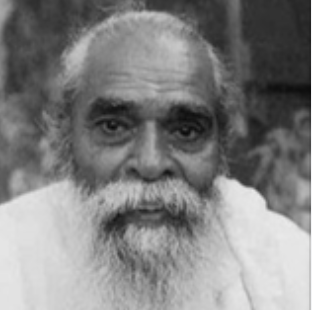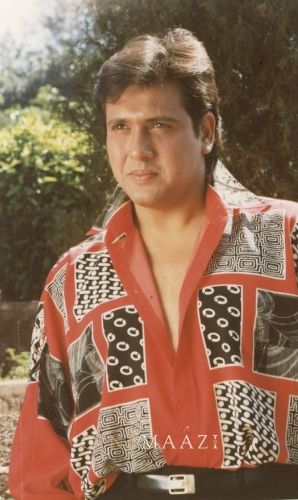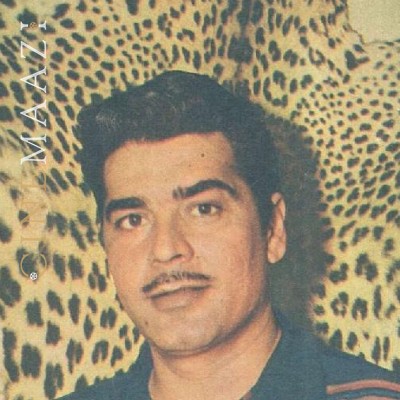M M Kreem
- Real Name: Koduri Marakathamani Keeravaani
- Born: 4 July, 1961 (Andhra Pradesh)
- Primary Cinema: Telugu
- First film: Manasu Mamatha (1990)
- Parents: Koduri Siva Shakti Dutta
- Spouse: M M Srivalli
- Children: Kaala Bhairava, Sri Simha
M M Kreem is a multi-award winning, popular composer, playback singer and lyricist. Trained in Indian classical music, melody is closely entwined with his name—Keeravani happens to also be the name of a Carnatic raag. Interestingly, he has chosen to use different names for his work in various language cinema—he uses the name M M Keeravani for Telugu films, Maragathamani in Tamil cinema, and MM Kreem for his Hindi compositions. Honoured with the National Film Award for Best Music Direction for the Telugu film Annamayya (1997), he has also received eight Filmfare Awards, 11 state Nandi Awards and a Tamil Nadu State Film Award. His winning works include Kshana Kshanam (1991), Allari Priyudu (1993), Criminal (1994), Subha Sankalpam (1995), Pelli Sandadi (1996), Magadheera (2009), and Baahubali 2: The Conclusion (2017). Starting off as an assistant music director with K Chakravarthy in 1987, he gained attention for his work in the Telugu film Manasu Mamatha (1990), followed by the Ram Gopal Varma hit Kshana Kshanam (1991) which established his standing. Working primarily in the South Indian film industries, he made headway in Hindi films composing music for films such as Is Raat Ki Subah Nahin (1996), Sur – The Melody of Life (2002), Zakhm (1998), Saaya (2003), Jism (2003), Criminal (1995), Rog (2005) and Paheli (2005). He has composed music for over 220 films in various Indian languages.
He was born Koduri Marakathamani Keeravaani, on 4 July, 1961 in Kovvur, West Godavari district, Andhra Pradesh to Koduri Siva Shakti Dutta. In the year 1987, he started his career as an assistant music director with noted composer K Chakravarthy. Assisting in films such as Collectorgari Abbayi (1987) and Bharathamlo Arjunudu (1987), he also trained with veteran lyricist Veturi for more than a year. Kreem’s first big solo break in music came in 1990 with the film Kalki; however, as the film failed to released, his work passed unnoticed. Fame, though, was around the corner—his music for director Mouli's Manasu Mamatha (1990) won attention. It is considered his first released film. Kreem’s compositions for Ram Gopal Varma’s blockbuster Kshana Kshanam (1991) was widely acclaimed, and established his reputation as a music director of calibre. The songs of the film, including Jaamu raatiri, Jumbaare, Ammayi muddu, Andanantha etta, and Ko ante koti, became top chartbusters. Sridevi sang her only Telugu song, Ko ante koti, a duet with S P Balasubrahmanyam, in the road film. There was no looking back for Kreem, as offers poured in from the various South Indian film industries, including Tamil, Kannada, and Malayalam, and also from the Hindi film industry.
His foray into Hindi films with the Mahesh Bhatt directed Telugu-Hindi bilingual action thriller Criminal (1995), was well appreciated, in particular Tu mile dil khile. In Sudhir Mishra’s Is Raat Ki Subah Nahin (1996), Keeravani composed lilting melodies as Chup tum raho, Jeevan kya hai, and Mere tere naam. His Gali mein aaj chand nikla in Zakhm (1998) struck the right notes. Working mainly with the Bhatts—namely Mukesh, Mahesh and Pooja, he admitted to a matching of sensibilities. Maintaining that film music is of two kinds, for the lip and hip, he revealed that Mahesh Bhatt preferred the former, which is long-lasting and didn’t provide scope for pelvic movement. He continued to collaborate with the Bhatts in films such as Sur – The Melody of Life (2002), Jism (2003), Saaya (2003), Rog (2005) and Dhokha (2007), also rendering ballads as a playback singer. He is also known for rendering playback for Telugu films, such as the hit Annamayya (1997). His work in Amol Palekar’s Paheli (2005) was also appreciated, such as his tune Dheere jalna, which was a reworking of his own Telugu song Nadira dhinna from Okariki Okaru (2003).
Known for his lilting melodies, his songs were soothing and did not target the mass market. While he explored classical genres and musical styles in other languages, his melodies for Hindi films were less experimental. While his musical prowess took a backseat in the dramatic actioners Special 26 (2013) and Baby (2015), Kreem was unstoppable in Baahubali 2: The Conclusion. The imposing sounds he composed for this fantasy period drama, echoing the twists in the tale, is considered a masterstroke.
In the Malayalam industry, he has scored for films such as Neelagiri (1991), Soorya Manasam (1992) and Devaraagam (1996). His other ventures include Juvva (2018), Brahmanda Nayagan (2018), Missing (2018), Antim Faisla (2018), Savyasachi (2018), the biographical drama NTR: Kathanayakudu (2019), and its sequel NTR: Mahanayakudu (2019), and Vijayan (2020).
Winner of the National Film Award for Best Music Direction for Annamayya, he has also won the Filmfare Awards South for Best Music Director for Kshana Kshanam (1991), Allari Priyudu (1993), Criminal (1994), Subha Sankalpam (1995), Pelli Sandadi (1996), Magadheera (2009), and Baahubali: The Conclusion (2017), as well as the award for Best Lyricist – Telugu for the same film.
Married to M M Srivalli, who works as a line producer in films, his older son Kaala Bhairava is a singer, while his younger son Sri Simha made his debut with Mathu Vadalara (2019). Kreem’s brother Kalyani Malik is also a music director and singer. He is also the cousin of director S S Rajamouli and music director-singer M M Srilekha, and the nephew of Telugu and Hindi film screenwriter and director K V Vijayendra Prasad.








.jpg)


